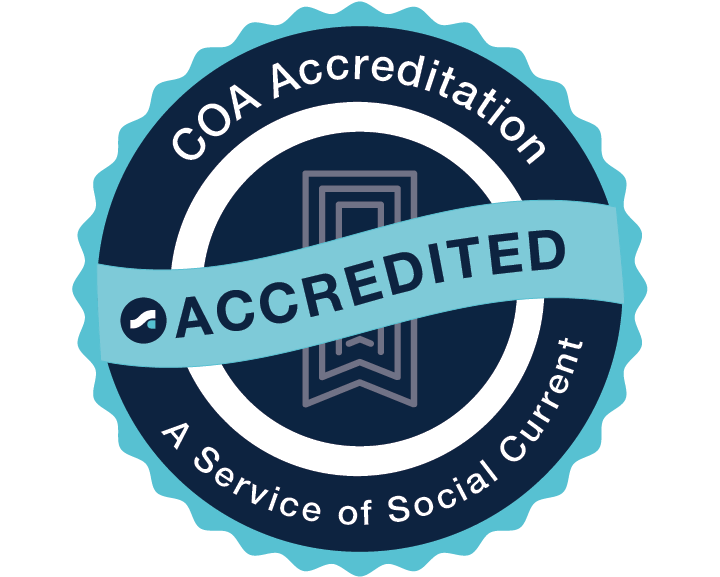General Questions:
1. What treatment options are available through the Outpatient Behavioral Health program at Focus on Youth, Inc.?
Focus on Youth provides Evidence Based Practice/Treatment – is referred to as EBP or EBT, refers to the preferential use of mental and behavioral health interventions for which systematic empirical research has provided evidence of statistically significant effectiveness as treatments for specific problems. Focus on Youth is proud to offer the following evidence based treatments.
Specific treatment options that are available at Focus on Youth Inc. include:
Play Therapy – Generally play therapy is used as a way to communicate with children who have trouble verbally expressing difficult feelings and emotions of a past or current event that needs to be addressed by the therapist. Play therapy uses play as a means to engage and build rapport with the child, so that the therapist and child can work toward the self-healing process. However play therapy is not limited to a child, but can also be beneficial with adolescents as well as adults. Types of Play Therapy utilized include Child-Centered Play Therapy, sand tray interventions, and Cognitive Behavioral Play Therapy. Play Therapy is an Evidence-Based Practice for children, ages 3 to 12 years old.
You can review the evidence-based practice statement for play therapy at https://a4pt.site-ym.com/?page=EvidenceBased.
Cognitive Behavioral Therapy (CBT) – A type of psychotherapy (or “talk therapy”) that is based on the theory that psychological symptoms are related to the interaction of thoughts, behaviors, and emotions. In cognitive behavioral therapy, the therapist and patient will work on identifying and directly changing thoughts and behaviors that may be maintaining symptoms. Cognitive behavioral therapists often assign homework for the patient to complete outside of sessions. Treatment for CBT is used with a variety of different problems such as depression and anxiety. CBT is an Evidence-Based Treatment.
Trauma Focused- Cognitive Behavioral Therapy (TF-CBT) – TF-CBT is a conjoint child and parent psychotherapy approach for children and adolescents who are experiencing significant emotional and behavioral difficulties related to traumatic life events. Children and parents learn new skills to help process thoughts and feelings related to traumatic life events; manage and resolve distressing thoughts, feelings, and behaviors related to traumatic life events. TF-CBT is an Evidence-Based Treatment.
Structured Sensory Interventions for Traumatized Children Adolescents and Parents (SITCAP) – “The core principle of the SITCAP model is that by providing children with the opportunity to safely revisit and rework the primary subjective experiences of trauma, within the sensory, not cognitive context in which they are experienced, sorted, and remembered, PTSD symptoms and grief and trauma related mental health reactions can be significantly reduced, the gain sustained, and the resilience developed and/or strengthened in ways that support growth… Trauma experiences are difficult to communicate through words and are more easily described through sensory-based interventions. Sensory-based interventions are non-language activities that help children convey the way they now see themselves, others and the world around them as a result of their trauma experiences… the ‘SITCAP®-ART’ and ‘I Feel Better Now!’ programs are listed on SAMHSA’s National Registry of Evidence Based Programs and Practices.” (www.starr.org)
You can review more information on the SITCAP model at https://starr.org/sitcap.
Eye Movement Desensitization and Reprocessing (EMDR) – EMDR (Eye Movement Desensitization and Reprocessing) is a psychotherapy that enables people to heal from the symptoms and emotional distress that are the result of disturbing life experiences. Repeated studies show that by using EMDR therapy people can experience the benefits of psychotherapy that once took years to make a difference. It is widely assumed that severe emotional pain requires a long time to heal. EMDR therapy shows that the mind can in fact heal from psychological trauma much as the body recovers from physical trauma. When you cut your hand, your body works to close the wound. If a foreign object or repeated injury irritates the wound, it festers and causes pain. Once the block is removed, healing resumes. EMDR therapy demonstrates that a similar sequence of events occurs with mental processes. The brain’s information processing system naturally moves toward mental health. If the system is blocked or imbalanced by the impact of a disturbing event, the emotional wound festers and can cause intense suffering. Once the block is removed, healing resumes. Using the detailed protocols and procedures learned in EMDR therapy training sessions, clinicians help clients activate their natural healing processes. (EMDR Institute)
Trust Based Relational Intervention (TBRI) – TBRI® is an attachment-based, trauma-informed intervention that is designed to meet the complex needs of vulnerable children. TBRI® uses Empowering Principles to address physical needs, Connecting Principles for attachment needs, and Correcting Principles to disarm fear-based behaviors. While the intervention is based on years of attachment, sensory processing, and neuroscience research, the heartbeat of TBRI® is connection. (child.tcu.edu)
Family Therapy – views change in terms of the systems of interactions between family members. It emphasizes positive family relationships as key with a strong focus on parent-child interactions, family strengths, healthy communication, and conflict resolution skills. We provide family therapy services to birth families, adoptive families, foster families, or any important individuals involved with the client. Our approach to family therapy looks at the individual needs of each member, as well as the family as a whole. Depending on each family’s needs, we incorporate elements of Play Therapy, Cognitive Behavioral Therapy, and Family Systems Therapy.
Motivational Interviewing – Motivational Interviewing is a client-centered, directive method for enhancing motivation to change by exploring and resolving ambivalence. Motivation to change is elicited from the client, and not imposed by direct persuasion. This type of treatment is found to be effective with adolescents and with various treatment issues. Motivational Interviewing is an Evidence-Based Treatment.
Risks, Benefits, and Alternatives to Treatment:
Sometimes bringing up past issues, past experiences, and processing emotional and behavioral functioning may cause the client to have discomfort with some behavioral and emotional reactions. Discomfort and behavioral and emotional reactions are normal and are addressed as part of the treatment process. If a certain type of treatment does not seem to be working for the client or if the client has concerns about treatment, other types of alternative treatment options will be discussed.
2. What therapy is best for me?
Determining which therapy is best for the client depends on what issues the client presents as well as the type of goals being set mutually between client and therapist. Sometimes the issues that need to be addressed will be handled in more than one type of therapy, depending on the needs of the client.
3. How long will I be in therapy?
Determining how long a client will be in therapy will be considered individually based upon the needs of the client. After the client is assessed by the therapist, the therapist will schedule an ongoing appointment time with the client. Therapists review the duration and length of time for therapy based upon progress in treatment.
4. How does your agency calculate fees for service?
Focus on Youth accepts Medicaid insurance, dual insurance (private and Medicaid), and self-pay. For self-pay, the fees for service are:
Psychiatric Diagnostic Evaluation: $235.00 flat fee (generally lasting 2 hours)
Psychotherapy: $95.00 per session (typically lasting 38-52 minutes)
*You may also request rate for shortened or extended sessions.
5. What happens if I have a financial hardship?
Focus on Youth, Inc. will offer a negotiated reduced fee to working poor families, families experiencing financial hardship, and for whom the cost of Behavioral Health Services could make getting services for their children prohibitive. This offer will be made as long as there are designated and unencumbered funds available to defray the fee reduction.
6. How long will sessions last?
Therapy sessions can last a range of time up to 60 minutes. The length of time depends on the client and the ability to stay in the session the length of time or if the client chooses to end the session early.
7. How often will I come to therapy?
New clients are generally seen for services weekly but based on the needs of the client, the frequency of service can be increased or reduced. The therapist will assess regularly as to the frequency of services depending on the client’s identified treatment needs.
8. What are my rights and responsibilities as a client?
Clients will receive a copy of the Client Rights Handbook. When beginning services, the therapist will review the information and clients will have an opportunity to ask any questions or share any needs or concerns.
9. What if I am not happy with the therapist?
You will receive a copy of the Focus on Youth grievance procedures. If a client or legal guardian is not satisfied with services received for whatever reason, it is suggested that the individual first talk to the therapist about issues and concerns. If a solution is not found, it is next suggested to speak to the therapist’s clinical supervisor. Finally, if a solution is still not reached, share your concerns verbally or in writing with the Executive Director of FOY. If you still do not find a solution to your issue you have the right to file a formal written grievance.
10. When can I expect to see change and benefits from participating in therapy?
Change for clients varies from individual to individual. Change is determined by the client’s motivation to work on identified treatment issues.
11. What are some reasons clients may be discharged?
There are a number of reasons why a client may be discharged from services. These reasons include:
– the client achieves the identified treatment goals;
– the client or legal guardian no longer desires the agency’s services; and
– the client no longer meets eligibility criteria.
– Additional reasons for discharge include refusal of the client to meet program standards or requirements, a client whose needs exceed the services the agency is capable of providing, and when the court approves discharge of clients who were mandated to participate in treatment by the court.


